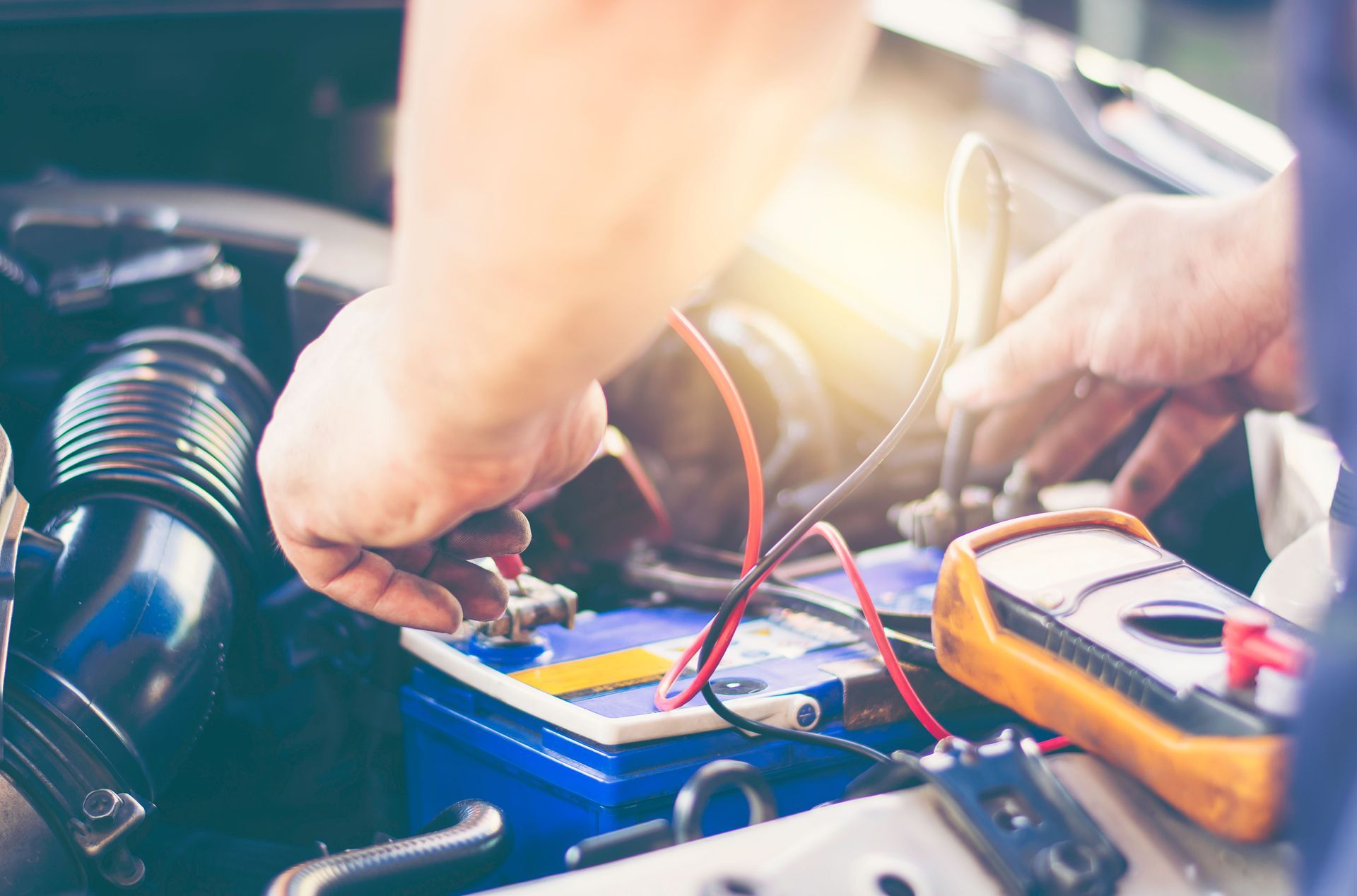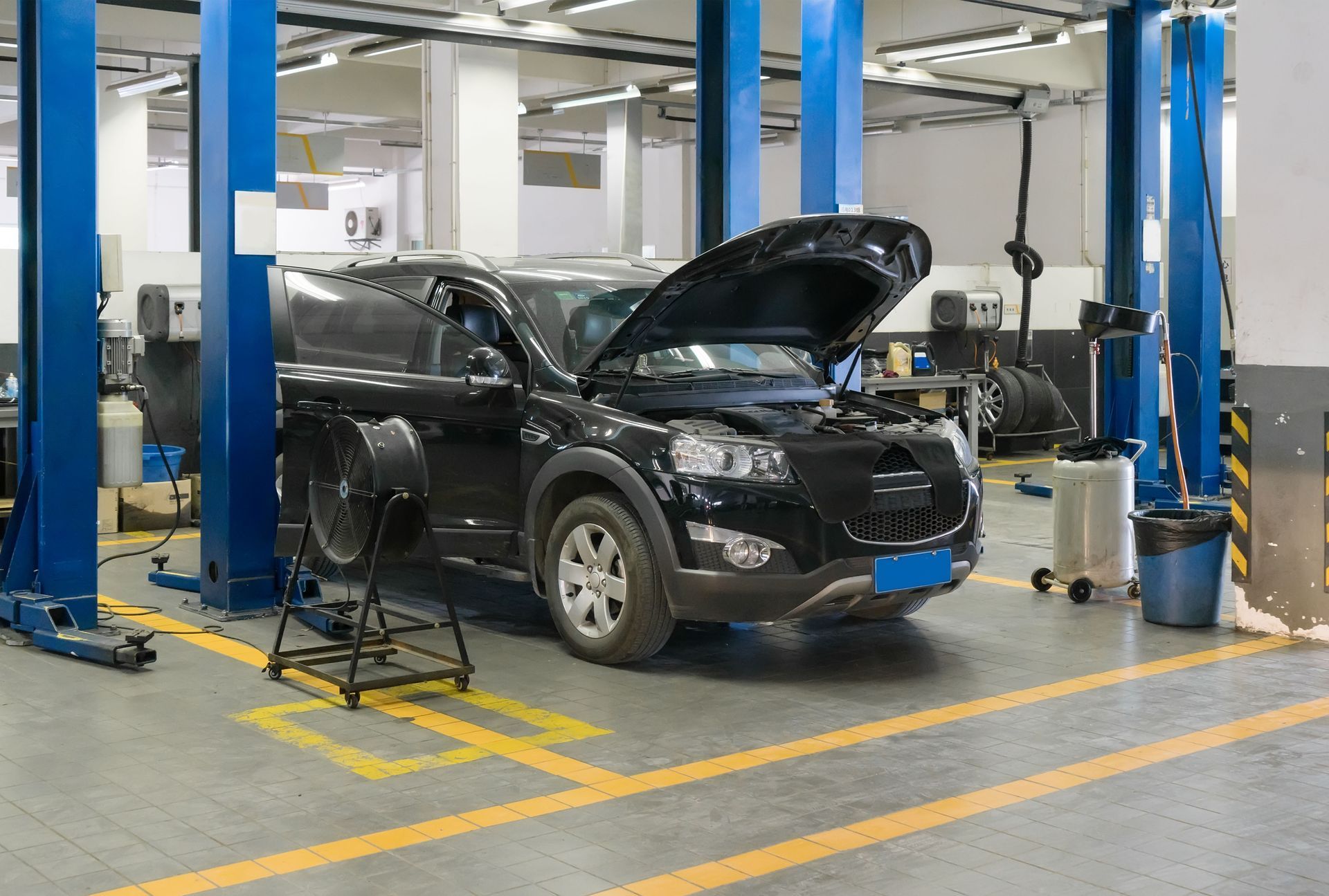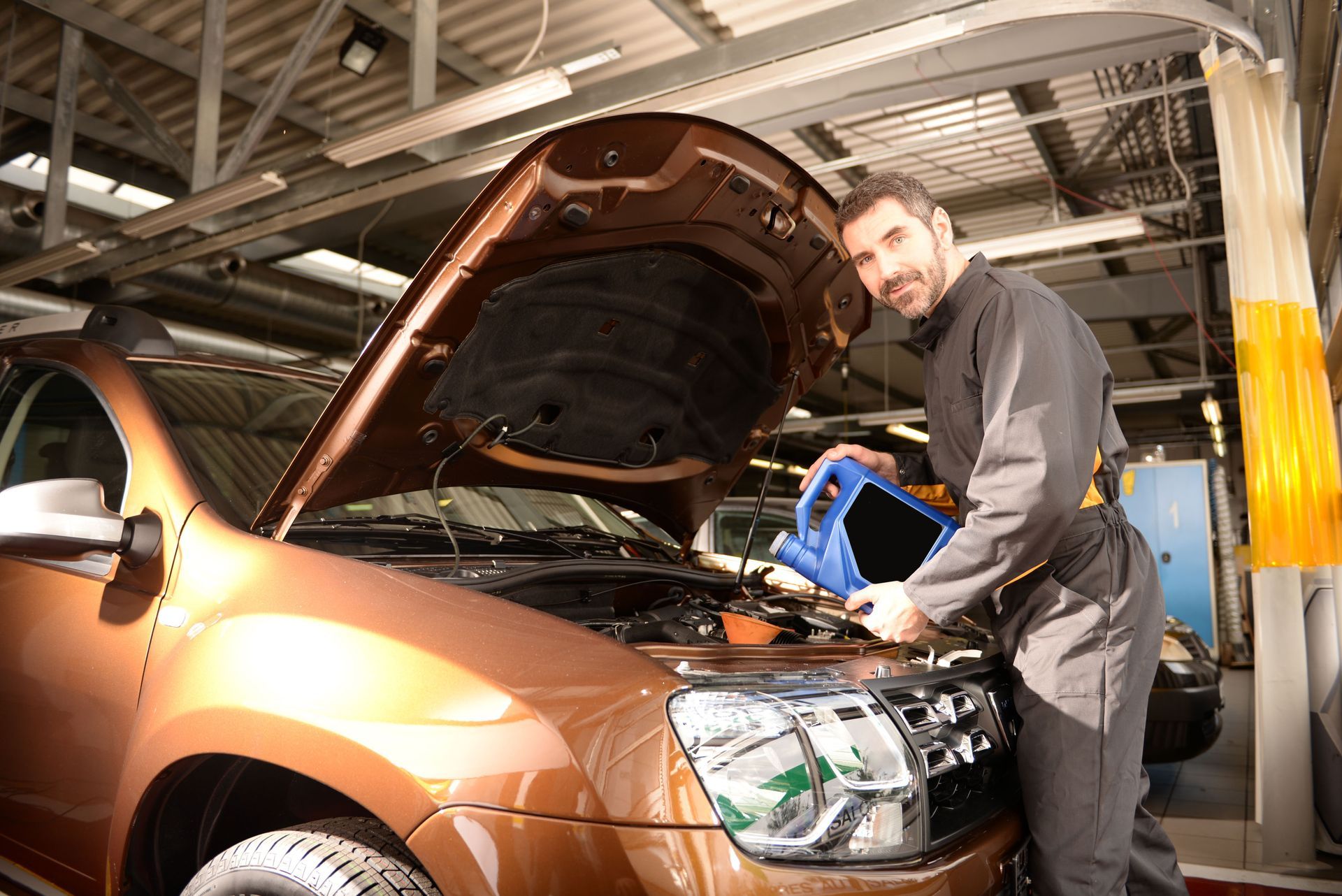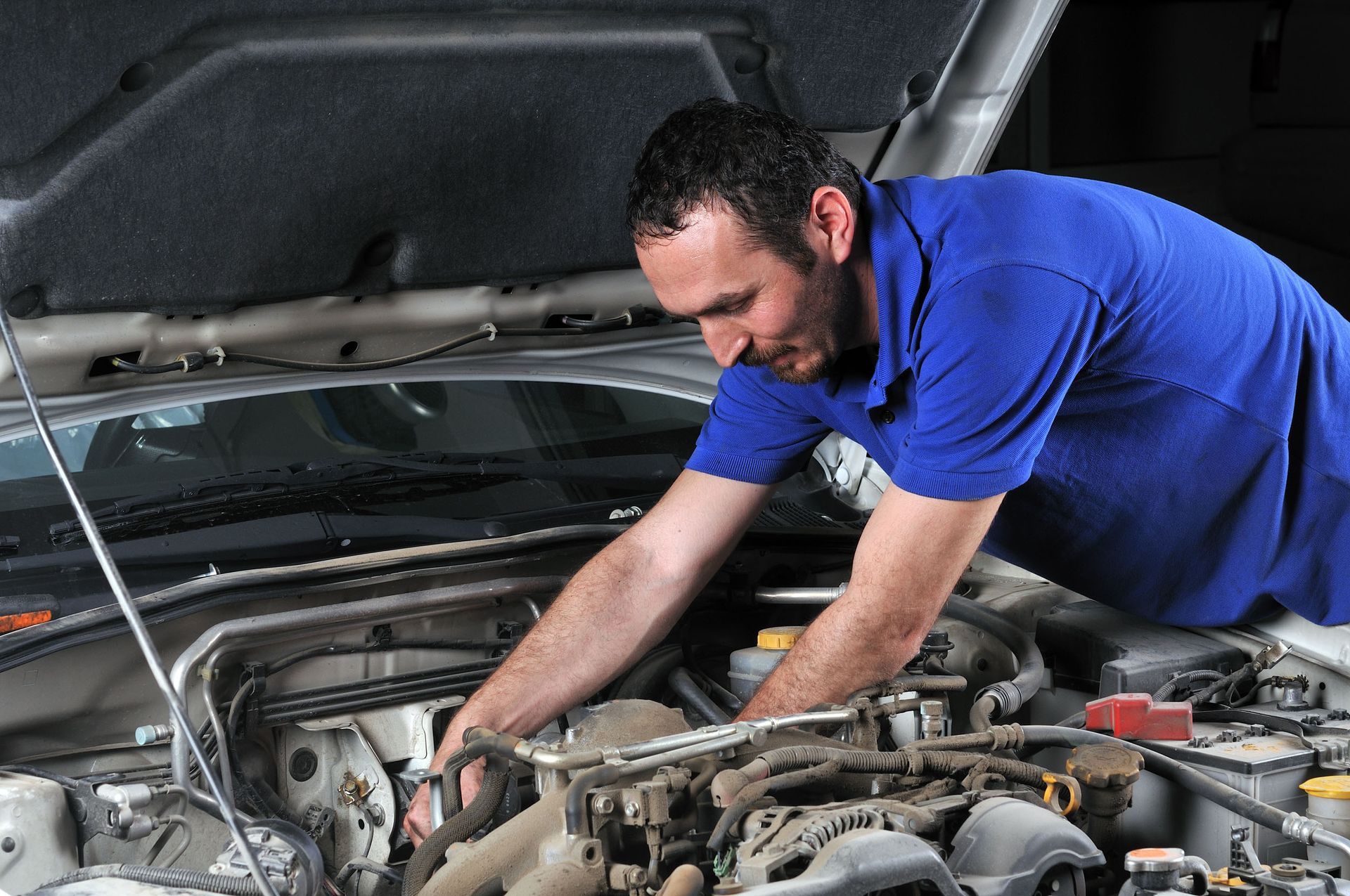The Importance of Regular Vehicle Diagnostics: Keeping Your Car Healthy
Highlights:
- Regular diagnostics catch hidden problems before they become costly repairs.
- A price-match guarantee on oil changes and diagnostics helps keep maintenance affordable.
- Knowing when to schedule diagnostics ensures better vehicle performance and safety.
- Preventative maintenance practices—like regular oil changes—extend your car’s lifespan.
- Choosing the right repair shop with certified technicians is key for accurate results.
When it comes to keeping your car in peak condition, regular vehicle diagnostics play a crucial role. These tests can identify hidden issues before they turn into expensive repairs. If you’re searching for a car repair shop with a price-match guarantee on oil changes and diagnostics, Zentner's Auto Service in Appleton, WI, is here to help you stay on top of your vehicle’s health without overspending.
According to Mordor Intelligence, the U.S. automotive service market is expected to continue growing as vehicles become more complex, making regular diagnostics and expert care more important than ever. Let’s explore why diagnostics matter, how often you should schedule them, and how preventative maintenance can keep your vehicle running smoothly for years to come.
Understanding Vehicle Diagnostics
Modern vehicles are essentially computers on wheels, and diagnostics allow technicians to communicate with your car’s onboard systems. These systems oversee everything from fuel injection to transmission performance, emissions control, and even safety features like airbags and anti-lock brakes. When a problem occurs, the onboard computer stores a trouble code, which can then be retrieved using diagnostic tools. This process helps pinpoint the root cause of an issue instead of relying solely on guesswork. As cars become more technologically advanced, diagnostics have evolved to be faster and more precise, saving drivers time, money, and unnecessary parts replacements.
What Are Vehicle Diagnostics?
Vehicle diagnostics involve connecting specialized tools to your car’s onboard computer to read error codes. These codes indicate potential problems with systems like the engine, transmission, emissions, or electrical components.
The most common tool is the OBD-II scanner, but many shops also use multimeters, fuel pressure gauges, and all-in-one diagnostic platforms to get a full picture of your car’s health. This process reduces guesswork and allows repairs to be completed accurately and efficiently.
Benefits of Regular Diagnostics
Getting diagnostics regularly can:
- Catch small problems before they become costly repairs
- Improve fuel efficiency and vehicle performance
- Reduce the risk of breakdowns on the road
- Extend your vehicle’s overall lifespan
According to
AutoLeap, many repair shops now rely on advanced diagnostic software that allows them to pinpoint issues faster and with greater accuracy.
FAQs: Vehicle Diagnostics
How often should I schedule a diagnostic check?
At least once a year or every 12,000 miles is recommended, but schedule one sooner if your check engine light comes on.
Can diagnostics prevent expensive repairs?
Yes. By catching early signs of wear or malfunction, diagnostics often save drivers hundreds—or even thousands—of dollars.
Do all repair shops offer the same diagnostic quality?
No. Look for a car repair shop with a price-match guarantee on oil changes and diagnostics and certified technicians for reliable results.
When to Schedule Diagnostics
While annual diagnostics are a good baseline, certain situations call for an extra check:
- Before taking a long road trip
- When buying or selling a used vehicle
- If you notice strange noises, vibrations, or performance loss
Some issues won’t trigger warning lights, which is why proactive diagnostics are so important. A repair shop that offers price-matching on diagnostics makes it more affordable to check your car regularly.
Did You Know?
Modern vehicles have more than 100 sensors. These sensors monitor everything from tire pressure to oxygen levels in the exhaust. Because of this complexity, skipping diagnostics can mean missing critical early warnings.
According to the
Bureau of Labor Statistics, demand for skilled automotive technicians remains steady, reflecting how vital professional diagnostics and repairs are to keeping vehicles safe.
Choosing the Right Repair Shop
Not all shops offer the same level of expertise or pricing. When comparing options, look for shops that:
- Employ ASE-certified technicians
- Use up-to-date diagnostic equipment
- Provide clear explanations and detailed estimates
- Offer guarantees or warranties on their work
A car repair shop with a price-match guarantee on oil changes and diagnostics helps you stay within budget while still receiving top-notch service. This is a sign that the business is confident in its pricing and committed to customer satisfaction.
Preventative Maintenance Matters
Diagnostics are only one piece of the puzzle. Preventative maintenance helps avoid future problems and keeps your car running at its best. This includes routine services like oil changes, tire rotations, brake inspections, and fluid top-offs that protect critical systems from unnecessary wear. Sticking to a maintenance schedule recommended by your manufacturer can prevent sudden breakdowns and extend the life of expensive components like the transmission and engine. When you combine regular diagnostics with preventative maintenance, you create a proactive plan that saves money over time and keeps your car safe, reliable, and performing at its full potential.
Regular Oil Changes
Changing your oil on schedule is one of the simplest, most effective ways to extend engine life. Fresh oil lubricates moving parts, removes debris, and reduces wear. Most vehicles need an oil change every 5,000–7,500 miles, though you should consult your manual for specific recommendations. Neglecting oil changes can lead to sludge buildup, overheating, and even engine failure, resulting in costly repairs. Using the right type of oil—conventional, synthetic blend, or full synthetic—also plays a key role in performance. Many shops, including those with a price-match guarantee on oil changes and diagnostics, make staying current affordable and convenient.
Tracking Vehicle Performance
Keep an eye on your vehicle’s key performance indicators, such as fuel efficiency, tire pressure, and battery health. Many newer cars have built-in monitoring systems, but you can also use mobile apps or keep a manual log. Tracking these numbers over time helps you notice small changes before they turn into costly problems. For example, a gradual drop in fuel efficiency could signal a clogged air filter or failing spark plugs. Low or fluctuating tire pressure may point to a slow leak. By spotting these early warning signs, you can schedule diagnostics sooner and avoid unexpected breakdowns or repairs.
FAQs: Preventative Maintenance
How do I know if I’m overdue for an oil change?
Check your mileage against the sticker from your last oil change, or watch for darker, dirty oil when you pull the dipstick.
Does regular maintenance really save money?
Absolutely. It reduces the likelihood of major repairs and keeps your car running efficiently, which saves on fuel costs.
Is a price-match guarantee worth it?
Yes. A car repair shop offering a price-match guarantee on oil changes and diagnostics helps you get the best deal without sacrificing service quality.
Why Zentner's Auto Service Is a Smart Choice
If you’re in Appleton, WI, Zentner's Auto Service combines expert diagnostics, certified technicians, and a price-match guarantee on oil changes and diagnostics to give you both peace of mind and great value. This commitment means you never have to choose between quality service and affordability. Our team uses state-of-the-art diagnostic equipment to quickly identify any issues, explain them clearly, and recommend only the repairs you truly need. By offering competitive pricing and transparent service, we make it easier for drivers to stay on top of routine maintenance. The result is a safer, more reliable vehicle and fewer unexpected breakdowns.





Share On: